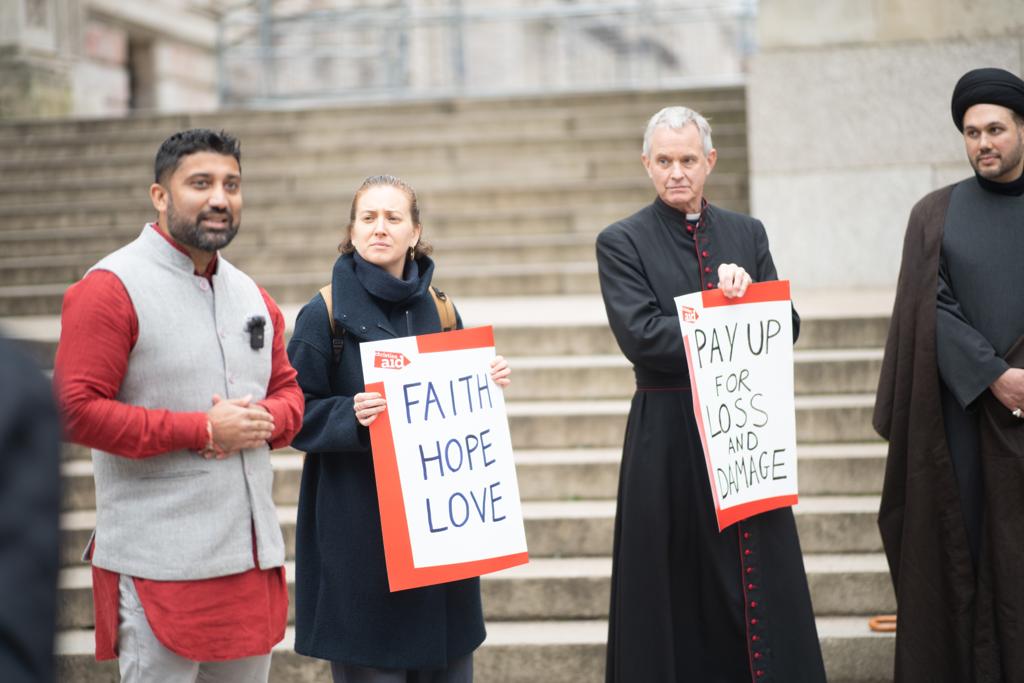Faith Leadership and Representatives

Faith for the Climate’s network of faith leaders and representatives has an ambition – that we mobilise our faith communities to work together to ensure that leaders in all sectors and at all levels put climate and environmental justice at the heart of their work. We know that climate change is now a crisis because it was caused historically by inequality and injustice, and it now drivers more inequalities and injustices. Those who have done least to cause climate change are suffering most.
We welcome all faiths, and our definition of ‘leadership’ and ‘representation’ is not confined only to those traditions with formal hierarchies or ordination structures – this network not only includes ordained Christian bishops and priests and Jewish rabbis, but also spokespersons from Quaker, Buddhist, and Sikh communities. What is most important is agreement with our general principles on climate justice.
The governments and businesses that have done the most to cause climate change continue dragging their feet even as we know there is much more to be done. Faith groups can and do make a difference. People of faith played a huge role that led to the historic “loss and damage” fund agreed at COP27, the UN climate talks in 2022. This includes communities and organisations based in the UK – many as part of the Faith for the Climate network. At the upcoming general election, faith communities can take the lead or support climate justice creatively, and with compassion and steadfastness.
How might we do this within and across our faith traditions? A Christian church and a Sikh gurdwara in a local area, for example, could lead a powerful mixed-faith delegation together in a collective approach to a local MP. Or a local mosque, synagogue, or mandir might be able to join forces with local chapters of national environmentalist networks, for example, Friends of the Earth or Greenpeace.
